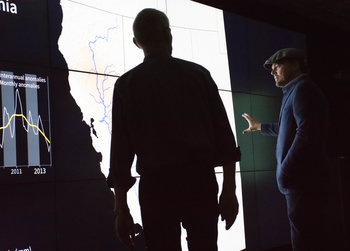
Facts vs Interpretations
There are no facts, only interpretations.~ Friedrich NietzscheA fact is information that can be measured with a machine or that is generally accepted by experts and/or authorities on a topic.An interpretation is situated knowledge that is colored by a person's experience, world view, emotions and motives.Facts do exist. The idea that all knowledge is situated is technically true but often insignificant.
Example #1
The term situated knowledge suggests a highly specific viewpoint that may be useful for making decisions and solving problems. For example, urban planners find it is better to engage a community to design features that impact their life such as a park or living street as opposed to producing a naive design based on the ideas of an expert or artist.Example #2
A world health authority holds a conference of medical researchers who are world-renowned experts in a particular type of cancer. The goal is to decide if a particular substance is a cause of the disease. After reviewing the evidence from 31 studies, the 44 researchers are polled for their expert opinion. The poll finds that 43 believe that it is highly likely that the substance can cause this particular cancer. This study would be enough to constitute a highly probable theory that can be considered fact. It is technically true to say that each expert opinion is based on a view of the world. However, this has little significance if you want to do practical things such as save lives.Example #3
Situated knowledge can be used to explain the difficulty of understanding and analyzing history or culture from the outside. For example, modern observers of history may be quick to project modern morals and ideas when they imagine how people of the past felt or were motivated. This doesn't mean that analysis by an outsider is worthless or unfair, just that it is difficult. It is still important that we understand history and it is valid for a member of one culture to form theories about another culture. For example, it is valid for a Japanese researcher to form a theory about American culture but it may be very different from how Americans view themselves.| Overview: Situated Knowledge | ||
Type | ||
Definition | Information that reflects a context and originates with a viewpoint. | |
Related Concepts | ||





























